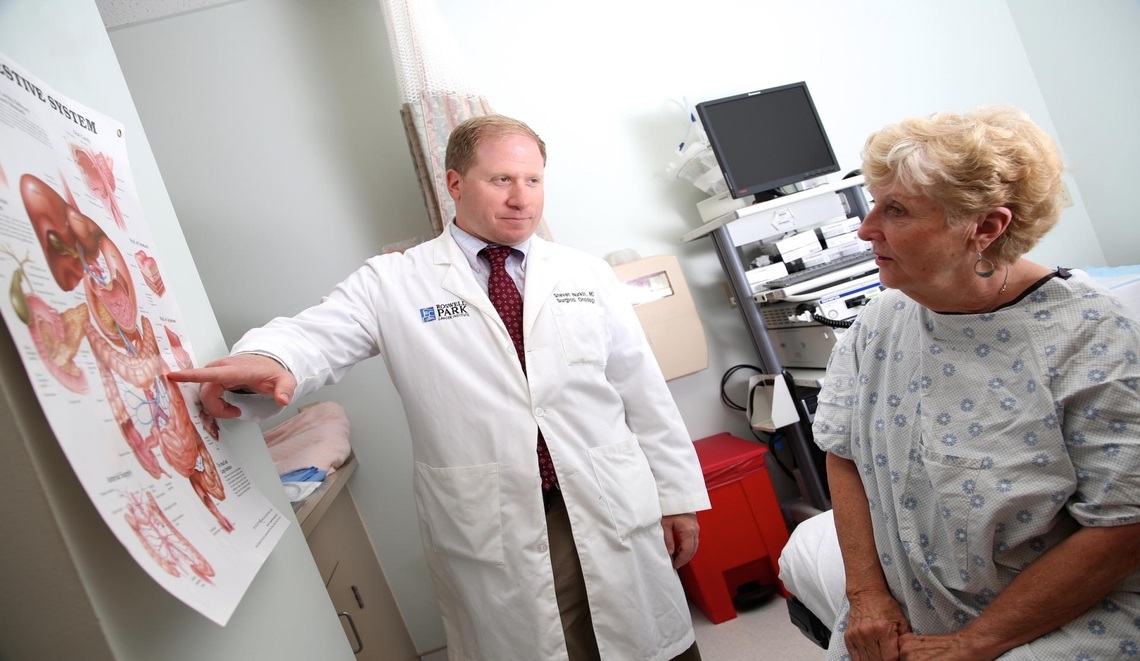

What if your lunch today could help prevent cancer a decade from now? That’s exactly what researchers in Houston are trying to figure out as they investigate the powerful connection between diet and colorectal cancer. The reality is, this isn’t some rare disease. It’s the most common cancer in the U.S., striking both men and women at alarming rates. Since we can’t change our genes, we can choose what we eat. And that’s why scientists are constantly exploring how our food choices today might help keep us healthier tomorrow.
And due to the growing number of colorectal cancer trials in Houston, clinical research companies like Biopharma Informatic are focused, connecting research to real life.
Here's what we've learned about diet and colon cancer risk: Eating too much red meat, processed foods, and sugary snacks seems to push the risk up. But the good news? Adding more vegetables in your diet, whole grains and foods packed with natural antioxidants appears to help protect you. The research on this has become pretty convincing over the years.
However, despite these associations, the exact biological mechanisms remain unclear. Does diet affect gene expression in the colon? Is the gut microbiome the missing link? Or do nutrients trigger immune responses that affect tumor growth? These questions are now the focus of current research being conducted right here in Houston.
Discover More: Enhance Colorectal Care with Research Participation
Houston has two big advantages for this research: world-class medical centers and one of America's most diverse communities. This unique combo lets scientists study how diet impacts health across different populations - something that's especially critical for colorectal cancer. We know diagnosis rates and treatment outcomes vary significantly between racial and ethnic groups, which Houston's diversity helps us understand better why.
Moreover, researchers in Houston are using advanced tools—like gut microbiome tests, food tracking apps, and genetic mapping—to better understand how diet is linked to cancer. They’re going beyond the basic question of “What foods help?” and looking into “Why does it work?” and “Who benefits the most?” Through well-designed studies, they’re aiming to move past generic advice and develop more personalized ways to prevent cancer.
Driving much of this research is Biopharma Informatic, a Houston clinical research company focused on advancing medicine through cutting-edge studies. We're tackling two big goals: speeding up breakthroughs in science and giving local communities real ways to participate in health research that matters.
We work closely with research centers, universities and healthcare providers to help run and support colorectal cancer trials in Houston. Our team makes sure that people—whether they’re at risk or in good health—are informed, supported and matched with studies that fit their medical history, dietary habits and personal preferences.
Beyond trial coordination, we are also focused on educating the community about cancer prevention. From sharing credible dietary advice to offering access to preventative screenings, Biopharma Informatic aims to transform complex research into real-life benefits for the Houston population.
Current studies are addressing a wide range of diet-related questions. Here are just a few areas of focus:
Read On: Better Life for Patients During Colorectal Cancer Treatment
Some trials are looking beyond social factors—they’re examining how real-life factors like grocery store access, education levels, and cultural traditions shape their dietary habits and cancer risks. Let’s face it: telling everyone to ‘eat healthier’ doesn’t work if their circumstances differ. That’s why this research matters—it helps create practical advice that actually fits people’s lives.
What's really exciting about these trials is they're moving beyond generic 'eat your greens' advice. Researchers are now studying how your unique DNA, gut bacteria, and metabolism interact with food to affect cancer risk. Imagine getting personalized nutrition advice tailored to your body's specific needs - that's the future Houston scientists and Biopharma Informatic are building toward.
Here’s the truth: medical breakthroughs don’t happen overnight – they happen because real people choose to participate. When you join a clinical trial, you become an essential partner in discovery. You’ll gain insights about your own health while helping create solutions that could protect families for generations.
The best part? Most studies use simple methods like tracking meals in an app, mailing in small stool samples, or quick blood draws. You'll get free health screenings and regular check-ins from doctors - which can be extra valuable if cancer runs in your family or you have other risk factors.
Read more: Colorectal Cancer Trials: Eligibility & Process in Houston
The link between diet and colorectal cancer isn’t just hypothetical—it’s a real shot at prevention. Every new study reveals how today’s food choices impact tomorrow’s health. And because Houston’s at the forefront of this research, people have got unique opportunities. Your participation doesn’t just help science—it will help with prevention.
Currently, Biopharma Informatic needs volunteers for colorectal cancer studies. Whether you want to get insights about your own health or contribute to advancing medicine—your participation matters. It’s a chance to be part of real change.
If you're interested in participating, become a volunteer for us today. Help advance research. Support your community. Be part of the future of cancer prevention.